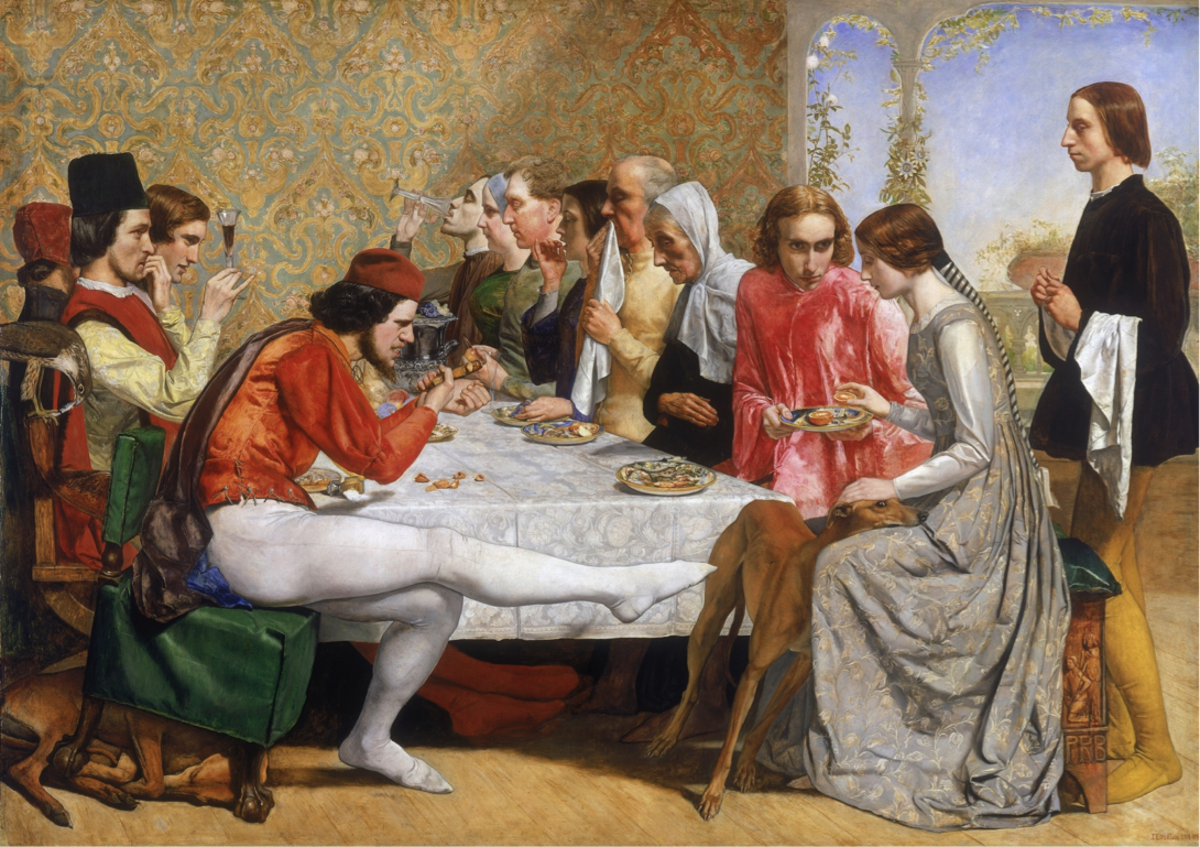The Pre-Raphaelites 1848-60
Berwick-St-James Art Appreciation
The Reading Room (opposite the Boot Inn)
Thursday 21st October 2021 at 7.30 with entry from 7.10
The Pre-Raphaelites 1848-60

In September 1848, a year of Revolutionary turmoil throughout most of Europe, three young, hugely gifted and aspiring painters, William Holman Hunt, Dante Gabriel Rossetti and John Everett Millais, met in the Millais family home in Central London, just around the corner from the British Museum. The meeting led to the formation of the Pre-Raphaelite Brotherhood, whose aims were to challenge the long-held traditions of the Academic establishment, to inject fresh ideas based on the attentive study of Nature and Quattrocento painting, to the exclusion of the conventional and ‘self-parading’, but most indispensable of all, to produce thoroughly good paintings. Although they were not political revolutionaries, their chosen narrative style and technique were certainly at first a radical challenge to the artistic establishment. Please join me to be reminded of their most iconic works and the influential advocacy of John Ruskin, poet, artist, art critic, champion of Turner and author of Modern Painters.